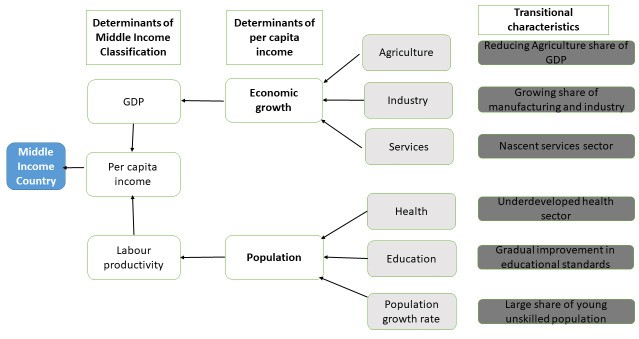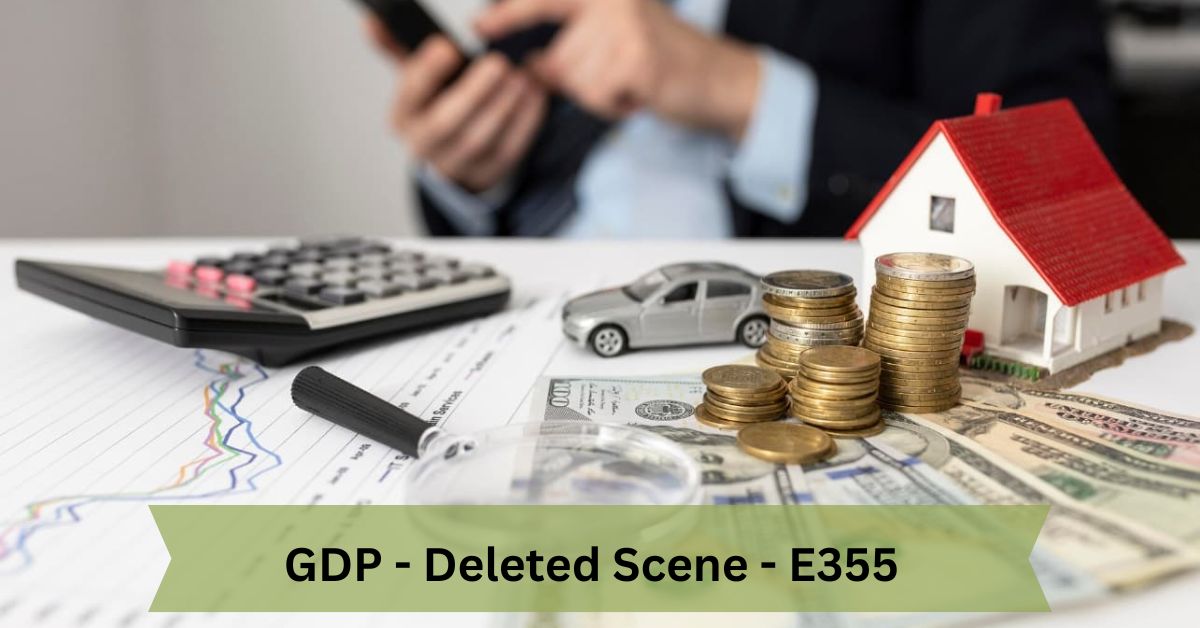Introduction:
The term “GDP,” or Gross Domestic Product, is a key economic measure globally used to assess a country’s performance. This article explores the enigmatic phrase “GDP – Deleted Scene – E355,” offering insights into its significance and the hidden aspects of economic evaluations. By the end, you’ll gain a deeper understanding of GDP and its broader implications.
What is GDP?
Gross Domestic Product (GDP) is the total monetary value of all goods and services produced within a country’s borders in a specific period, usually annually or quarterly. It’s one of the most commonly used indicators of a country’s economic health.
Why is GDP Important?

- Economic Indicator: GDP is a primary measure of a country’s economic performance. A growing GDP indicates a flourishing economy, while a declining GDP may signal economic trouble.
- Living Standards: Higher GDP often correlates with better living standards, as more goods and services are available to the population.
- Policy Making: Governments and central banks use GDP data to make informed decisions on monetary and fiscal policies.
Read: Ươmen – A Comprehensive Insight
The “Deleted Scene” Concept
The term “Deleted Scene” might sound unusual when talking about GDP. In movies, deleted scenes are parts that were filmed but not included in the final cut.
Similarly, in the context of GDP, a “deleted scene” could metaphorically represent overlooked or unaccounted factors that influence a country’s economic performance.
“Deleted Scene – E355”: What Could It Mean?
The “E355” might be a code or reference to a specific economic scenario or model. It could symbolize an element or event that significantly impacts the GDP but is often not included in mainstream calculations or discussions.

For instance, this could refer to underground economies, black markets, or even environmental factors that are not traditionally measured but play a vital role in the overall economic picture.
Read: https://multigrafico.com/khalil-chishtee-no-todo-el-arte-es-belleza/ – From Trash to Treasure!
Components of GDP
Understanding GDP involves breaking it down into its main components:
- Consumption (C): The total value of all goods and services consumed by households. This includes everything from groceries to rent.
- Investment (I): Expenditures on capital goods that will be used for future production. This includes business investments in equipment, as well as new construction.
- Government Spending (G): Total government expenditures on goods and services. This includes spending on defense, education, and infrastructure.
- Net Exports (X-M): The value of a country’s exports minus its imports.
These components combine to give the GDP formula: GDP=C+I+G+(X−M)\text{GDP} = C + I + G + (X – M)GDP=C+I+G+(X−M)
Factors Influencing GDP
Several factors can influence a country’s GDP:

- Labor Force: The number of people working and their productivity can significantly impact GDP.
- Capital: The availability of machinery, technology, and infrastructure.
- Natural Resources: A country rich in natural resources might have a higher GDP.
- Technology: Advances in technology can lead to more efficient production processes.
- Government Policies: Tax rates, regulations, and government spending can all influence GDP.
Read: /Liveamoment.Org – A Community For Mindfulness And Global Discussions!
The Hidden Aspects: The “Deleted Scene” in GDP
Now, let’s delve into the metaphorical “deleted scenes” of GDP—those factors that are often overlooked but can profoundly impact the economy:
- Underground Economy:
Activities that aren’t reported to the government, such as black market transactions or informal labor, can contribute significantly to economic output but aren’t captured in official GDP statistics. - Environmental Costs:
Traditional GDP calculations don’t account for environmental degradation. For instance, deforestation might boost GDP through timber sales but ignores the long-term environmental costs. - Quality of Life:
GDP measures economic output but doesn’t directly account for the quality of life, such as work-life balance, access to healthcare, or income inequality. - Technological Advancements:
While tech innovations contribute to GDP, their full impact, especially in the digital and information age, might not be fully captured.
“E355” and Its Implications
The specific code “E355” could be a reference to a model or scenario in economic theory that emphasizes these “deleted scenes.” For example, “E355” might represent a scenario where environmental costs are factored into GDP, leading to a new understanding of economic growth that accounts for sustainability.

This concept aligns with the idea of “Green GDP,” which adjusts the traditional GDP by accounting for environmental harm and resource depletion. In this light, “GDP – Deleted Scene – E355” could be seen as a call to re-evaluate how we measure economic success.
Interpreting GDP – Deleted Scene – E355 in Modern Economics
Modern economists are increasingly advocating for more comprehensive economic indicators that go beyond traditional GDP. The “GDP – Deleted Scene – E355” might represent this shift towards more inclusive economic measures.
Inclusive Wealth Index (IWI)
One alternative to GDP is the Inclusive Wealth Index (IWI), which considers a country’s wealth, including natural, human, and produced capital. Unlike GDP, which focuses solely on current economic activity, IWI takes into account the sustainability of growth.
Human Development Index (HDI)
The Human Development Index (HDI) is another measure that considers life expectancy, education, and per capita income. It provides a broader picture of economic progress by factoring in social and human elements.
Read: Moszacos Lipstick Moisturizing – Guide To Hydrated And Vibrant Lips!
Real-World Applications: How “Deleted Scenes” Affect You
Understanding the “deleted scenes” in GDP can change how we view economic policies and their real-world impacts. For example:
- Environmental Policy: If GDP included environmental costs, there might be stronger incentives for governments to invest in renewable energy and conservation.
- Social Programs: Recognizing the value of unpaid work, like caregiving, could lead to policies that better support families and reduce income inequality.
- Technology and Innovation: Factoring in the benefits of technology, even those not reflected in immediate economic output, could lead to more investment in research and development.
Read: Old Timey Oh My Nyt -Nostalgic Clues And Answers In Nyt Crosswords!
(FAQs)
- What is GDP?
GDP stands for Gross Domestic Product, the total monetary value of all goods and services produced within a country in a specific period.
2. Why is GDP important?
GDP is a crucial indicator of a country’s economic health, guiding policy decisions and reflecting living standards.
3. What does “GDP – Deleted Scene – E355” mean?
It symbolizes overlooked factors in GDP calculations, such as environmental costs, underground economies, and technological advancements.
4. What are the components of GDP?
The main components are Consumption, Investment, Government Spending, and Net Exports.
5. How does the underground economy affect GDP?
The underground economy consists of unreported economic activities, which contribute to economic output but aren’t captured in official GDP statistics.
Conclusion:
The concept of “GDP – Deleted Scene – E355” challenges us to rethink how we measure economic success. By acknowledging the hidden aspects of GDP, such as environmental costs and the underground economy, we can move towards a more inclusive and accurate understanding of economic well-being.
Read more:



